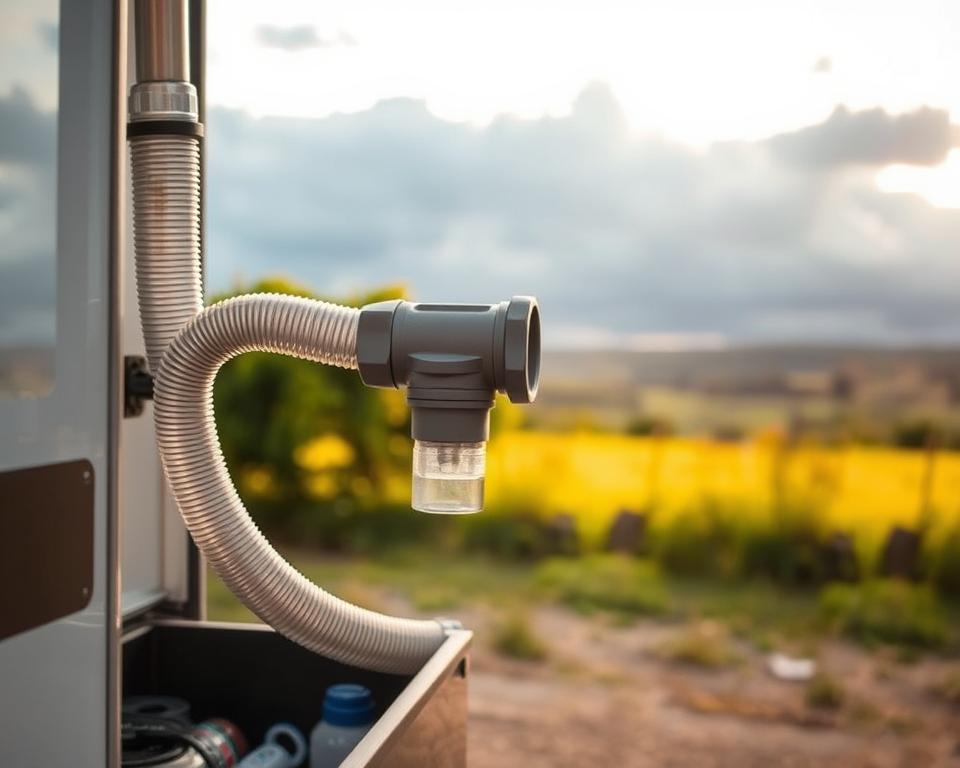Your Guide to RV Septic Tank Service & Care
Curious about what goes on to your RV’s Septic tank while you’re rolling down the highway? It’s more than avoiding bad smells. Keeping your RV Septic tank properly serviced ensures problem-free journeys. A properly cared-for system avoids messy mishaps and costly repairs. However, many ignore this vital care. Within this article, we explain the need for regular RV sewer pumping service. We’ll spotlight the value of upkeep and provide tips for cleaning your recreational vehicle’s Septic tank. Get ready for worry-free trips!
Major Findings
- Scheduled RV Septic tank service is vital for optimal performance.
- Knowing your RV Septic system assists sidestep costly repairs.
- Proactive maintenance stops unpleasant odors and clogs.
- Create a pumping schedule suited to your usage.
- Practice best practices for draining your holding tanks.
- Bypass common mistakes to lengthen the life of your Septic system.
- Know when to enlist professional help for Septic services.
How an RV Septic System Works
An RV Septic system is key for any camper. It includes multiple holding tanks that process waste effectively. You’ll find three critical tanks in an RV: the fresh water, the gray, and the black tank. The fresh water tank provides clean water for drinking and cooking. Meanwhile, the gray tank collects wastewater from sinks and showers, ensuring cleanliness. The black tank, specifically for toilet waste, also has a vent to minimize odors.
Preserving a healthy camper sewage system demands understanding how these parts interact. Regular checks of the tank levels are essential to stop overflow and guarantee everything runs without a hitch. Getting to know the termination valves is crucial too. These valves are key in effectively handling waste disposal. By familiarizing yourself with these components, you can keep your RV in great shape and enjoy your travels without any unnecessary trouble.
| Reservoir | Purpose | Capacity |
|---|---|---|
| Fresh Water Tank | Supplies drinking and cooking water | 30-100 gallons |
| Gray Tank | Stores wastewater from sinks and showers | 30-60 gallons |
| Black Tank | Stores toilet waste | 30-50 gallons |
Importance of Regular RV Septic Tank Service
Regular RV Septic tank service is imperative to keeping your system effective and long-lasting. Without adequate maintenance, you could face system failures, bad smells, and costly repairs—issues that interrupt your adventures.
If you ignore the upkeep of your RV’s Septic system may cause it to back up. This not only slows your RV’s function but also your comfort levels. A serviced and maintained system is essential for hassle-free trips, granting you a serene travel experience.

Ongoing maintenance lengthens your sewage system’s lifespan and maintains a clean living space. Watching your Septic tank allows you spot issues early. This foresight saves costs and stress, granting you confidence during your journeys.
Frequency of RV Septic Tank Pumping
Figuring out the ideal schedule for RV Septic tank maintenance is based on the vehicle’s usage. For those constantly on the road or residing in their RVs, it’s wise to drain the black tank every three to five days. This practice maintains cleanliness and stops unexpected issues during voyages.
Weekend adventurers can generally wait until they return home to pump their Septic tank. Keeping waste in the tank too long, though, can cause build-up that impedes the tank’s function and smell control. It’s crucial to check the tank’s level closely, preparing for disposal once it hits around two-thirds full to keep everything running smoothly.
The capacity of your Septic system, along with how you use your RV, will dictate when to pump. Understanding these aspects enhances your RV’s performance and cuts the dangers of poor waste management.
| Usage Pattern | Recommended Pumping Frequency | When to Pump Right Away |
|---|---|---|
| Frequent Usage | Every 3-5 days | Tank is two-thirds full |
| Weekend Trips | After return home | Unpleasant odors or lazy draining |
| Extended Trips | Every 2-3 days | Visual indicators of fullness |
How to Empty RV Holding Tanks Properly
Effectively managing a recreational vehicle’s holding tanks is crucial for a pleasant camping experience. Always start by draining the black tank first. This strategy lets the gray water to flow through and help rinse out the hose. Make sure the use of a high-quality sewer hose for a secure connection and to reduce spills. Once the tanks are emptied, thoroughly flushing the black tank is important. Employing a built-in black tank flush or comparable alternatives can dramatically cut residue.
After the emptying process, it’s essential to close both valves securely. This action is vital to sustain a fully operational Septic system. Additionally, RV owners must utilize dump stations properly and adhere to local laws. Consistent cleaning practices for recreational vehicle Septic tanks are key. They protect the system’s optimal functionality and avoid future odors.
Preventing Odors and Clogs in Your RV
To tackle odors and prevent clogs in your RV, careful attention is crucial. The task starts with ensuring enough water in the holding tanks. Adequate water helps in breaking down waste efficiently, cutting bad smells.
Selecting suitable toilet paper is critical in this process. Opt for RV-safe toilet paper that breaks down quickly, preventing clogs. This small adjustment considerably supports maintaining seamless waste flow.
Using enzyme-based treatments can further enhance waste decomposition and odor control. These eco-friendly solutions help keep your RV smelling fresh. It’s also important to regularly examine vent pipes for obstructions to guarantee good airflow and stop odors from infiltrating your living area.
Errors to Dodge in RV Septic Maintenance
Looking after your RV’s Septic system properly is essential for its performance and longevity. When non-biodegradable items like wipes or feminine products are flushed, they can cause major blockages. These blockages can cause various problems that are difficult to resolve.
Not using enough water when flushing can also harm the system. It causes waste buildup, resulting in nasty scents and potential damage. Furthermore, a common mistake at full hook-up sites is leaving the black tank valve open. This allows waste to pool at the tank’s bottom.
Preventive measures include routinely flushing and rinsing tanks after emptying them. Failing to keep up maintenance can grow into significant issues requiring expensive repairs. Being proactive and knowledgeable protects both your RV and your finances.
Signs You Need Professional RV Septic Help
Knowing when to seek professional RV Septic services is critical for maintaining a healthy Septic system. Some signs signal the need for expert intervention. When you see slow-draining tanks or get persistent foul odors emanating from your RV, it is prudent to act promptly. These signs often indicate underlying issues that demand a thorough Septic tank service for resolution.
Visible leftover waste after emptying can also indicate problems within your Septic system. This situation may not clear with routine maintenance and may call for the use of specialized equipment. Professionals are equipped to handle complex challenges with tools, such as high-pressure water jets, to provide a comprehensive cleaning process.
Early professional assistance can make a big difference. Minor issues can rapidly escalate into more severe complications without proper care. Investing in professional RV Septic services preserves the integrity of your system and extends its lifespan.
| Problem Indicators | Suggested Response |
|---|---|
| Slow draining tanks | Contact professional RV Septic services for assessment |
| Persistent foul odors | Schedule Septic tank service for diagnostics |
| Visible leftover waste | Seek immediate assistance from a professional |
| Frequent clogs | Consider expert cleaning solutions |
Sustaining RV Septic Performance Over Time
Long-term care for RV Septic systems demands attention past basic pump-outs. Doing deep cleaning of tanks every few months stops buildup and prolongs system life. Examining dump valve seals regularly stops leaks. Additionally, sanitizing the system preserves it clean and functioning well.
It’s important to monitor tank sensors to ensure they work correctly. Incorrect readings may lead to over-filling, hurting performance. Regular sensor checks and tweaking maintenance schedules can ward off this problem.
| Action | Interval | Benefits |
|---|---|---|
| Deep Cleaning Tanks | Every 3-6 months | Prevents buildup and clogs |
| Inspect Dump Valve Seals | Monthly | Prevents drips |
| Sanitize System | Every 6 months | Keeps odors down |
| Monitor Tank Sensors | Monthly | Guards against overflow |
Forward-thinking maintenance is key to your RV Septic system’s long-term health. It creates smooth and carefree travel experiences.
All In Sanitation: Trusted RV Septic Partner
All In Sanitation specializes at delivering RV Septic services that meet each client’s unique needs. Whether it’s routine pump-outs or full tank cleaning, they grasp the vital role of a well-functioning Septic system in your RV’s performance.
Boasting extensive expertise in RV Septic systems, All In Sanitation provides top-tier guidance on maintenance and care. Their team is knowledgeable in the specific challenges RV owners face and provides effective solutions when troubles arise.
Selecting All In Sanitation allows RV enthusiasts fully engage in their journeys, handing over Septic concerns to a trustworthy ally. Their dedication to excellent service provides tranquility and improves the pleasure of adventures on the open road.
As a Final Point
Looking after your RV Septic tank is essential for hassle-free travels. It’s important to know your system and stay on top of regular services. This guarantees you won’t face unexpected issues on your journey. These key steps cover frequent pumping and using sound waste management practices.
Proper long-term care holds your system in top shape. By using the provided maintenance tips, you can boost your travel experience. This approach guards against expensive repairs later. Keep in mind, avoiding common errors and understanding when to seek professional help are important.
In the end, being ahead of the curve in your RV Septic system’s maintenance ensures a hassle-free adventure. It lets you to focus on forming lasting memories. So, apply these steps to heart and savor your road trips to their fullest.

